Postpartum Diet While Breastfeeding
Written by Connor Bringas on January 11, 2023.
Following a postpartum diet plan while breastfeeding can ensure that mothers get the nutrients they need to fuel their body and their baby. Getting proper nutrients is important for so many reasons: breastfeeding not only requires more energy from mothers, but milk supply can also vary depending on the types of foods they eat and how much nutrients they are getting. What a mother eats can also affect the digestive response of their babies, which is why mothers often ask what foods to avoid.
Dietary questions for breastfeeding mothers typically arise around how much food to eat, what types of food to eat, and if there are any foods to avoid. We will answer some of those commonly asked questions about a breastfeeding diet for moms below.
Best Diet for Breastfeeding Mom
Table of Contents
- What should I eat postpartum while breastfeeding?
- How to boost nutrients in milk for breastfeeding
- How much should I eat while breastfeeding?
- How much water do I need while breastfeeding?
- Can I have caffeine while breastfeeding?
- What foods to avoid while breastfeeding
- Breastfeeding diet for mom if baby has food allergies
- Other tips for the best postpartum diet while breastfeeding
What should I eat postpartum while breastfeeding?
A postpartum diet plan while breastfeeding should focus on nutrient-rich and healthier foods. Nutrient-rich foods should provide more protein and incorporate more whole grains and vegetables. Think of it like trying to get more bang for your buck. Or, in this case, more bang for every bite. Here are some foods you can incorporate:
- Protein: Incorporating protein can be done in many ways, including lean meats, poultry, eggs, nuts, beans, and fish (so long as it isn’t high in mercury content).
- Whole grains: Adding cereal, oatmeal, whole wheat bread, and pasta can be a great way to get whole grains that will help satisfy your hunger.
- Fruits and Vegetables: Having a few servings of fruits and vegetables daily can help ensure you consume plenty of good nutrients.
How to boost nutrients in milk for breastfeeding
Boosting the nutrients in your milk for breastfeeding happens largely with the foods you consume. That’s why focusing on healthier alternatives is so important for getting your baby nutritious breast milk. If you follow a vegetarian or vegan diet, be sure to find ways to incorporate those nutrients into the diet you choose. You may also talk to your healthcare provider about the option for supplements if needed.
How much should I eat while breastfeeding?
If you’re wondering if you’ll need to consume more calories in your postpartum diet while breastfeeding, the answer is yes. Consuming more calories will help you keep up with the energy required in milk production and breastfeeding. For busy mothers who are always on the go, sneaking in those extra snacks or meals can feel like a challenge; in those moments when your baby wants to be held and you need a snack, you’ll need an extra hand. Tushbaby has you covered: strap on your Tushbaby and enjoy the ability to hold your baby with added support, and free up a hand to get yourself that nutritious snack from one of the many storage pockets.
How much water do I need while breastfeeding?
Drinking enough water is an important part of keeping yourself healthy and hydrated. If you don’t drink enough water, you will risk feeling fatigued and possibly decrease your milk production. While you may not necessarily need to drink more water than usual, you will want to be sure to stay hydrated. When you are busy with a baby, it can be easy to forget to get your water in. A trick to tackling this and staying hydrated is by having a glass of water each time you breastfeed. Moms on the go know this is easier said than done, as you already have enough to pack along. By using the best-selling Totebaby or Tushbaby you can take advantage of more storage to support a happy and healthy mom and baby.
Can I have caffeine while breastfeeding?
While caffeine can be consumed while breastfeeding, it’s best to do so in moderation. Limiting caffeine consumption to no more than the equivalent of about 2 or 3 cups of coffee a day is recommended. There are a few reasons to limit caffeine intake, including its ability to upset your baby’s stomach and potentially interfere with their sleep.
What foods to avoid while breastfeeding
- Alcohol. Since there is no amount of alcohol safe in breast milk for a baby to consume, you’ll need to wait to breastfeed until any consumed alcohol has cleared your system. If you’re planning on consuming alcohol, you can always pump your milk beforehand to feed your baby later.
- Fish with a high mercury content. Mercury is a toxic metal that can impact your baby and their neurological development. Examples of fish with high mercury content include king mackerel, tilefish, and swordfish.
- Limit processed foods. Often processed foods will be higher in sugar content or calories but lacking in nutritious value. It’s best to swap processed foods for more healthy options and limit your intake of processed foods when you can.
Breastfeeding diet for mom if baby has food allergies
If your baby has food allergies, certain foods or drinks that you consume could cause a reaction from your breastmilk. Reactions to food can include fussiness, change in stools, rashes, or even wheezing. If you notice that your baby has become fussy due to something in your diet, try avoiding that food for a few days to a week to see if there are any behavior changes. For more serious signs of allergic reactions, like rashes or wheezing, you will need to check with a healthcare provider to identify the cause of the reaction.
Other tips for the best postpartum diet while breastfeeding
Find the foods that work for you
The most important part of a breastfeeding diet for moms is incorporating more nutritious foods. This can look different for everyone depending on their preferences and even their culture. Forcing yourself to eat healthy foods that you don’t particularly enjoy will make this feel like quite the task. A great way to find sustainability in doing this is by finding healthier alternatives to incorporate into meals or snacks that you already enjoy! For example, swapping a bag of chips for a nutritious pack of trail mix can be an excellent alternative for a convenient snack.
Pack snacks
Any time you leave the house, be sure to bring along some snacks for the road. Being prepared will help ensure you never have to settle for a less nutritious option while you are out and about. You can stash some smaller snacks in your Tushbaby carrier pockets or load up your Totebaby with some nutritious snacks or meals for a day on the go. The Tushbaby is our best-selling hip seat carrier that allows you to safely carry your baby and stash your things — a must-have for all parents. Plus, it can double as a breastfeeding pillow.
Praised for its multifunctional design that evenly distributes your baby’s weight, Tushbaby was designed to keep you and your baby safe, happy, and close together. And, of course, since a mom created it, its design features plenty of practicality, including storage pockets and multiple carry positions.
Stash your snacks, carry your baby, and breastfeed on the go. . . order your Tushbaby today!


![Tushbaby photo - Women holding baby using tushbaby gray ::[15109665390658]](http://tushbaby.com/cdn/shop/files/GreyCarrier.webp?v=1762198155)
![Tushbaby photo - Women holding baby using tushbaby gray ::[15109665390658]](http://tushbaby.com/cdn/shop/files/Grey3.webp?v=1748543102)
![Tushbaby photo - Women holding baby using tushbaby gray ::[15109665390658]](http://tushbaby.com/cdn/shop/files/rKeAfN6W.webp?v=1748543102)
![Tushbaby photo - Women holding baby using tushbaby gray ::[15109665390658]](http://tushbaby.com/cdn/shop/files/Grey4_95ede319-844c-41db-96eb-608ec6a3b897.webp?v=1748543102)
![Tushbaby photo - Women holding baby using tushbaby gray ::[15109665390658]](http://tushbaby.com/cdn/shop/files/Grey2.webp?v=1748543102)
![Tushbaby photo - Women holding baby using tushbaby gray ::[15109665390658]](http://tushbaby.com/cdn/shop/files/Grey5.webp?v=1747418215)
![Tushbaby photo - Hip seat carrier,baby carrier hip seat,baby wrap carrier baby carrier wrap,baby carrier,baby wrap carriers,baby carriers,baby wraps,baby sling wrap,baby slings,baby wrap sling,carrier for big baby, toddler carrier, nursing carrier, breastfeeding carrier, diaper bag, baby belt carrier, strapless carrier, big kid carrier, special needs carrier,Tote,Diaper bag,Tote bag,Diaper pad,Changing pad,Pacifier pod,Coin purse,Vegan leather bag,Vegan tote,Vegan baby products,plus sized baby carrier::[15109665390658]](http://tushbaby.com/cdn/shop/files/Grey8.webp?v=1747418215)
![Tushbaby photo - Tushbaby grey holding bottle ::[15109665390658]](http://tushbaby.com/cdn/shop/files/Grey9.webp?v=1747418215)
![Tushbaby photo - Women using tushbaby::[15109665423426]](http://tushbaby.com/cdn/shop/files/BlackColor1.webp?v=1747418215)
![Tushbaby photo - man using tushbaby::[15109665423426]](http://tushbaby.com/cdn/shop/files/BlackColor2.webp?v=1747418215)
![Tushbaby photo - Women using tushbaby::[15109665423426]](http://tushbaby.com/cdn/shop/files/BlackColor3.webp?v=1747418215)
![Tushbaby photo - ::[15109665423426]](http://tushbaby.com/cdn/shop/files/BlackColor4.webp?v=1747418215)
![Tushbaby photo - ::[15109665423426]](http://tushbaby.com/cdn/shop/files/BlackColor5.webp?v=1747418215)
![Tushbaby photo - ::[15109665423426]](http://tushbaby.com/cdn/shop/files/BlackColor6.webp?v=1747418215)
![Tushbaby photo - ::[15109665423426]](http://tushbaby.com/cdn/shop/files/BlackColor7.webp?v=1747418215)
![Tushbaby photo - ::[15109665423426]](http://tushbaby.com/cdn/shop/files/BlackColor9.webp?v=1747418215)
![Tushbaby photo - Women using tushbaby::[15109665521730]](http://tushbaby.com/cdn/shop/files/Black_Gold1_3.webp?v=1747418215)
![Tushbaby photo - Women using tushbaby::[15109665521730]](http://tushbaby.com/cdn/shop/files/Black_Gold2.webp?v=1747418215)
![Tushbaby photo - Women using tushbaby::[15109665521730]](http://tushbaby.com/cdn/shop/files/Black_Gold3.webp?v=1747418215)
![Tushbaby photo - Women using tushbaby::[15109665521730]](http://tushbaby.com/cdn/shop/files/Black_Gold4.webp?v=1747418215)
![Tushbaby photo - Man using tushbaby::[15109665521730]](http://tushbaby.com/cdn/shop/files/Black_Gold5.webp?v=1747418215)
![Tushbaby photo - Women using tushbaby::[15109665521730]](http://tushbaby.com/cdn/shop/files/Black_Gold6.webp?v=1747418215)
![Tushbaby photo - Tushbaby::[15109665521730]](http://tushbaby.com/cdn/shop/files/Black_Gold7.webp?v=1747418215)
![Tushbaby photo - Tushbaby::[15109665521730]](http://tushbaby.com/cdn/shop/files/Black_Gold9.webp?v=1747418215)
![Tushbaby photo - ::[31311822422082]](http://tushbaby.com/cdn/shop/files/VeganLeatherBlack1.webp?v=1747418215)
![Tushbaby photo - ::[31311822422082]](http://tushbaby.com/cdn/shop/files/VeganLeatherBlack3.webp?v=1747418215)
![Tushbaby photo - ::[31311822422082]](http://tushbaby.com/cdn/shop/files/VeganLeatherBlack4.webp?v=1747418215)
![Tushbaby photo - ::[31311822422082]](http://tushbaby.com/cdn/shop/files/VeganLeatherBlack5.webp?v=1747418215)
![Tushbaby photo - ::[31311822422082]](http://tushbaby.com/cdn/shop/files/VeganLeatherBlack7.webp?v=1747418215)
![Tushbaby photo - ::[31311822422082]](http://tushbaby.com/cdn/shop/files/VeganLeatherBlack8.webp?v=1747418215)
![Tushbaby photo - ::[31311822422082]](http://tushbaby.com/cdn/shop/files/VeganLeatherBlack9.webp?v=1747418215)
![Tushbaby photo - ::[40092713287746]](http://tushbaby.com/cdn/shop/files/LiteCharcoal1.webp?v=1747418215)
![Tushbaby photo - ::[40092713287746]](http://tushbaby.com/cdn/shop/files/LiteCharcoal2.webp?v=1747418215)
![Tushbaby photo - ::[40092713287746]](http://tushbaby.com/cdn/shop/files/LiteCharcoal3.webp?v=1747418215)
![Tushbaby photo - ::[40092713287746]](http://tushbaby.com/cdn/shop/files/LiteCharcoal4.webp?v=1747418215)
![Tushbaby photo - ::[40092713287746]](http://tushbaby.com/cdn/shop/files/LiteCharcoal6.webp?v=1747418215)
![Tushbaby photo - ::[40092713287746]](http://tushbaby.com/cdn/shop/files/LiteCharcoal7.webp?v=1747418215)
![Tushbaby photo - ::[40092713287746]](http://tushbaby.com/cdn/shop/files/LiteCharcoal8.webp?v=1747418215)
![Tushbaby photo - ::[40092713320514]](http://tushbaby.com/cdn/shop/files/VelvetSable1.webp?v=1747418215)
![Tushbaby photo - ::[40092713320514]](http://tushbaby.com/cdn/shop/files/VelvetSable3.webp?v=1747418215)
![Tushbaby photo - ::[40092713320514]](http://tushbaby.com/cdn/shop/files/VelvetSable4.webp?v=1747418215)
![Tushbaby photo - ::[40092713320514]](http://tushbaby.com/cdn/shop/files/VelvetSable5.webp?v=1747418215)
![Tushbaby photo - ::[40092713320514]](http://tushbaby.com/cdn/shop/files/VelvetSable6.webp?v=1747418215)
![Tushbaby photo - ::[40092713320514]](http://tushbaby.com/cdn/shop/files/VelvetSable7.webp?v=1747418215)
![Tushbaby photo - ::[40092713320514]](http://tushbaby.com/cdn/shop/files/VelvetSable8.webp?v=1747418215)
![Tushbaby photo - ::[40288698040386]](http://tushbaby.com/cdn/shop/files/VeganLeatherCognac1.webp?v=1747418215)
![Tushbaby photo - ::[40288698040386]](http://tushbaby.com/cdn/shop/files/VeganLeatherCognac3.webp?v=1747418215)
![Tushbaby photo - ::[40288698040386]](http://tushbaby.com/cdn/shop/files/VeganLeatherCognac4.webp?v=1747418215)
![Tushbaby photo - ::[40288698040386]](http://tushbaby.com/cdn/shop/files/VeganLeatherCognac5.webp?v=1747418215)
![Tushbaby photo - ::[40288698040386]](http://tushbaby.com/cdn/shop/files/VeganLeatherCognac6.webp?v=1747418215)
![Tushbaby photo - ::[40288698040386]](http://tushbaby.com/cdn/shop/files/VeganLeatherCognac7.webp?v=1747418215)
![Tushbaby photo - ::[40288698040386]](http://tushbaby.com/cdn/shop/files/VeganLeatherCognac8.webp?v=1747418215)
![Tushbaby photo - ::[40288698040386]](http://tushbaby.com/cdn/shop/files/VeganLeatherCognac9.webp?v=1747418215)
![Tushbaby photo - ::[40288698040386]](http://tushbaby.com/cdn/shop/files/VeganLeatherCognac10.webp?v=1747418215)
![Tushbaby photo - ::[40503457382466]](http://tushbaby.com/cdn/shop/files/Orchid1Square.webp?v=1747418215)
![Tushbaby photo - ::[40503457382466]](http://tushbaby.com/cdn/shop/files/Orchid3Square.webp?v=1747418215)
![Tushbaby photo - ::[40503457382466]](http://tushbaby.com/cdn/shop/files/Orchid4Square.webp?v=1747418215)
![Tushbaby photo - ::[40503457382466]](http://tushbaby.com/cdn/shop/files/Orchid5Square.webp?v=1747418215)
![Tushbaby photo - ::[40503457382466]](http://tushbaby.com/cdn/shop/files/Orchid6Square.webp?v=1747418215)
![Tushbaby photo - ::[40503457382466]](http://tushbaby.com/cdn/shop/files/Orchid7Square.webp?v=1747418215)
![Tushbaby photo - ::[40503457382466]](http://tushbaby.com/cdn/shop/files/Orchid8Square.webp?v=1747418215)
![Tushbaby photo - ::[40503457382466]](http://tushbaby.com/cdn/shop/files/Orchid9Square.webp?v=1747418215)
![Tushbaby photo - ::[40503457382466]](http://tushbaby.com/cdn/shop/files/Orchid10Square.webp?v=1747418215)
![Tushbaby photo - ::[40288993017922]](http://tushbaby.com/cdn/shop/files/VeganLeatherCream1.webp?v=1747418215)
![Tushbaby photo - ::[40288993017922]](http://tushbaby.com/cdn/shop/files/VeganLeatherCream3.webp?v=1747418215)
![Tushbaby photo - ::[40288993017922]](http://tushbaby.com/cdn/shop/files/VeganLeatherCream4.webp?v=1747418215)
![Tushbaby photo - ::[40288993017922]](http://tushbaby.com/cdn/shop/files/VeganLeatherCream6.webp?v=1747418215)
![Tushbaby photo - ::[40288993017922]](http://tushbaby.com/cdn/shop/files/TBcream_blackseat2.jpg?v=1759513482)
![Tushbaby photo - ::[40288993017922]](http://tushbaby.com/cdn/shop/files/VeganLeatherCream7.webp?v=1759513482)
![Tushbaby photo - ::[40288993017922]](http://tushbaby.com/cdn/shop/files/VeganLeatherCream9.webp?v=1759513482)
![Tushbaby photo - ::[40503457415234]](http://tushbaby.com/cdn/shop/files/SnowLeopard1.webp?v=1759513482)
![Tushbaby photo - ::[40288993017922]](http://tushbaby.com/cdn/shop/files/TBcream_blackseat1_b994af6f-4e75-4f7b-b8ba-9750798bd0e7.jpg?v=1759513482)
![Tushbaby photo - ::[40503457415234]](http://tushbaby.com/cdn/shop/files/SnowLeopard3.webp?v=1759513482)
![Tushbaby photo - ::[40503457415234]](http://tushbaby.com/cdn/shop/files/SnowLeopard4.webp?v=1759513482)
![Tushbaby photo - ::[40503457415234]](http://tushbaby.com/cdn/shop/files/SnowLeopard5.webp?v=1759513482)
![Tushbaby photo - ::[40503457415234]](http://tushbaby.com/cdn/shop/files/SnowLeopard6.webp?v=1759513482)
![Tushbaby photo - ::[40503457415234]](http://tushbaby.com/cdn/shop/files/SnowLeopard7.webp?v=1759513482)
![Tushbaby photo - ::[40503457415234]](http://tushbaby.com/cdn/shop/files/SnowLeopard8.webp?v=1759513482)
![Tushbaby photo - ::[40503457415234]](http://tushbaby.com/cdn/shop/files/SnowLeopard9.webp?v=1759513482)
![Tushbaby photo - ::[40503457448002]](http://tushbaby.com/cdn/shop/files/Tweed1.-Square.webp?v=1759513482)
![Tushbaby photo - ::[40503457448002]](http://tushbaby.com/cdn/shop/files/Tweed3-Square.webp?v=1759513482)
![Tushbaby photo - ::[40503457448002]](http://tushbaby.com/cdn/shop/files/Tweed4-Square.webp?v=1759513482)
![Tushbaby photo - ::[40503457448002]](http://tushbaby.com/cdn/shop/files/Tweed5-Square.webp?v=1759513482)
![Tushbaby photo - ::[40503457448002]](http://tushbaby.com/cdn/shop/files/Tweed6-Square.webp?v=1759513482)
![Tushbaby photo - ::[40503457448002]](http://tushbaby.com/cdn/shop/files/Tweed8-Square.webp?v=1759513482)
![Tushbaby photo - ::[41633540800578]](http://tushbaby.com/cdn/shop/files/Marble1.webp?v=1759513482)
![Tushbaby photo - ::[41633540800578]](http://tushbaby.com/cdn/shop/files/Marble2.webp?v=1759513482)
![Tushbaby photo - ::[41633540800578]](http://tushbaby.com/cdn/shop/files/Marble4.webp?v=1759513482)
![Tushbaby photo - ::[41633540800578]](http://tushbaby.com/cdn/shop/files/Marble5.webp?v=1759513482)
![Tushbaby photo - ::[41633540800578]](http://tushbaby.com/cdn/shop/files/Marble6.webp?v=1759513482)
![Tushbaby photo - ::[41633540800578]](http://tushbaby.com/cdn/shop/files/Marble7.webp?v=1759513482)
![Tushbaby photo - ::[41633540800578]](http://tushbaby.com/cdn/shop/files/Marble8.webp?v=1759513482)
![Tushbaby photo - ::[41633540800578]](http://tushbaby.com/cdn/shop/files/Marble9.webp?v=1759513482)
![Tushbaby photo - ::[41984257556546]](http://tushbaby.com/cdn/shop/files/Olive1_297431f9-eeb3-411c-bc0e-08d37e703197.webp?v=1759513482)
![Tushbaby photo - ::[41984257556546]](http://tushbaby.com/cdn/shop/files/Olive2_bb6953ff-d61f-471a-b48f-3b36c7dbfb21.webp?v=1759513482)
![Tushbaby photo - ::[41984257556546]](http://tushbaby.com/cdn/shop/files/Olive3_97f99469-33f5-4192-9446-dcdfdbf32e84.webp?v=1759513482)
![Tushbaby photo - ::[41984257556546]](http://tushbaby.com/cdn/shop/files/Olive4_f9c88ddf-96de-476c-bef3-d57f9ddbd5c1.webp?v=1759513482)
![Tushbaby photo - ::[41984257556546]](http://tushbaby.com/cdn/shop/files/Olive5_e2741f35-99ec-4ed5-9307-809ef4ead286.webp?v=1759513482)
![Tushbaby photo - ::[41984257556546]](http://tushbaby.com/cdn/shop/files/Olive6_a66205d9-b767-4224-a04f-6e20597c7c38.webp?v=1759513482)
![Tushbaby photo - ::[41984257556546]](http://tushbaby.com/cdn/shop/files/Olive7_ab97dc70-f0b9-4a70-9137-943b8e3982e1.webp?v=1759513482)
![Tushbaby photo - ::[41984257556546]](http://tushbaby.com/cdn/shop/files/Olive8.webp?v=1759513482)
![Tushbaby photo - ::[41984257556546]](http://tushbaby.com/cdn/shop/files/Olive9.webp?v=1759513482)
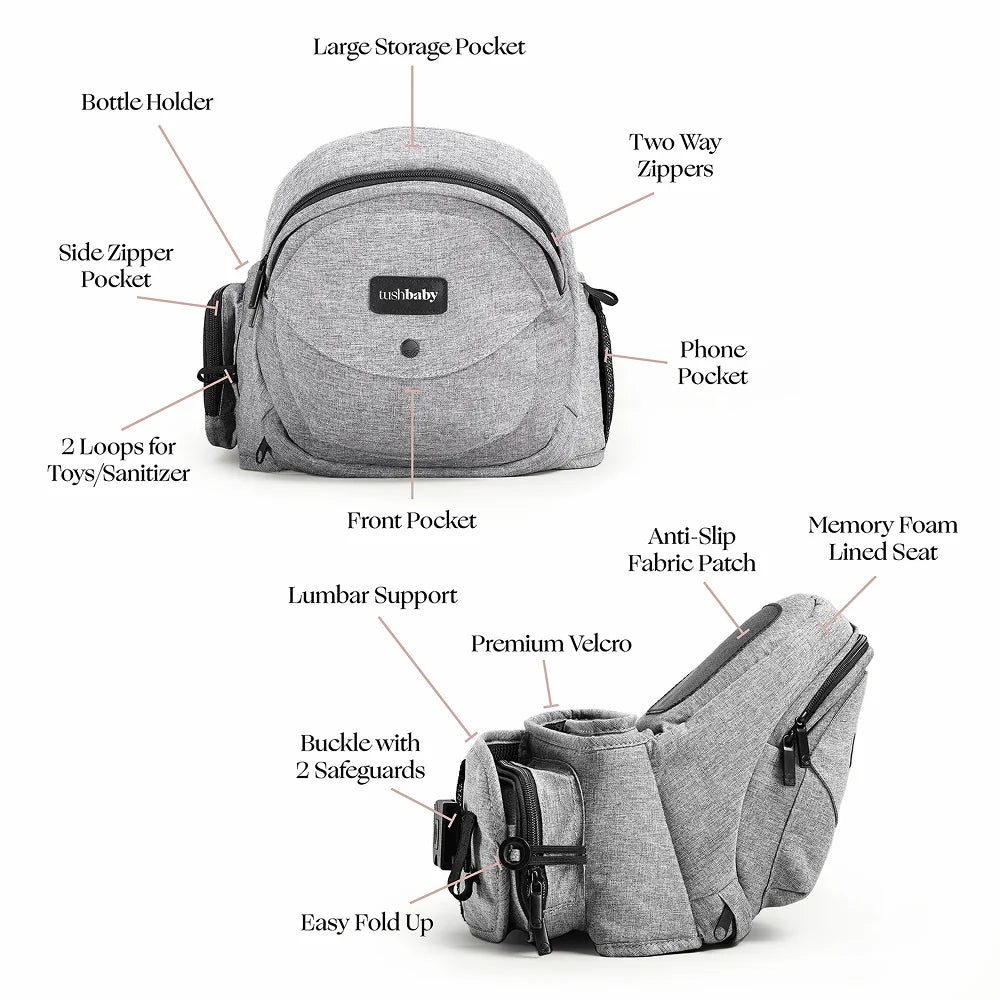
![Tushbaby photo - ::[s-uper-image] ::[e-mbroidery]](http://tushbaby.com/cdn/shop/files/BlackLeather-Monogram1.webp?v=1759513482)
![Tushbaby photo - ::[s-uper-image] ::[e-mbroidery]](http://tushbaby.com/cdn/shop/files/Orchid-Monogram.webp?v=1759513482)
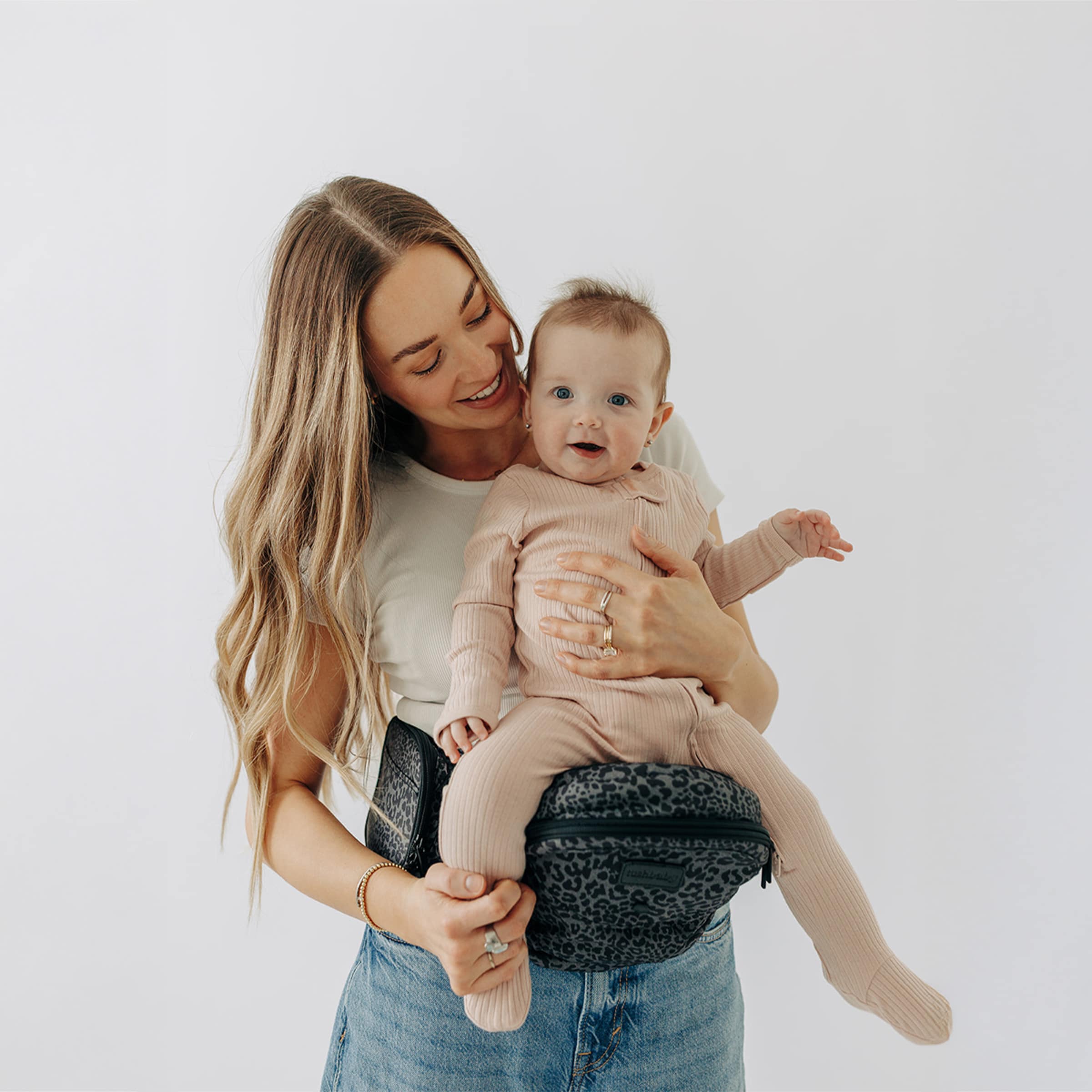

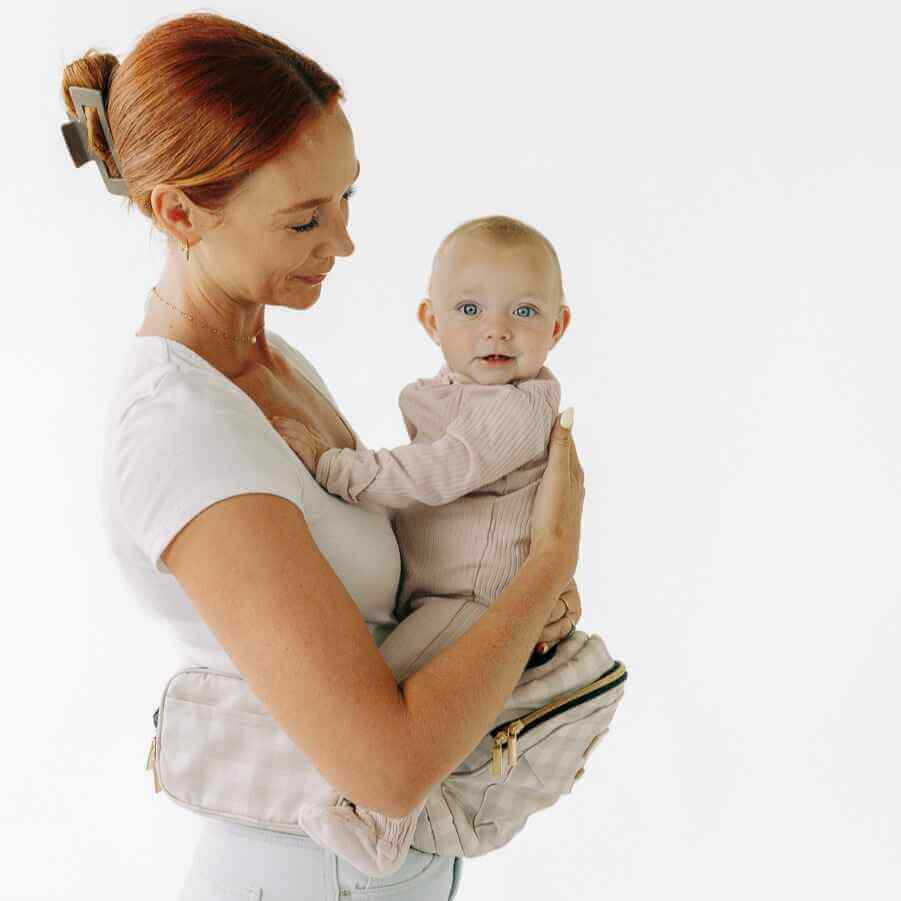
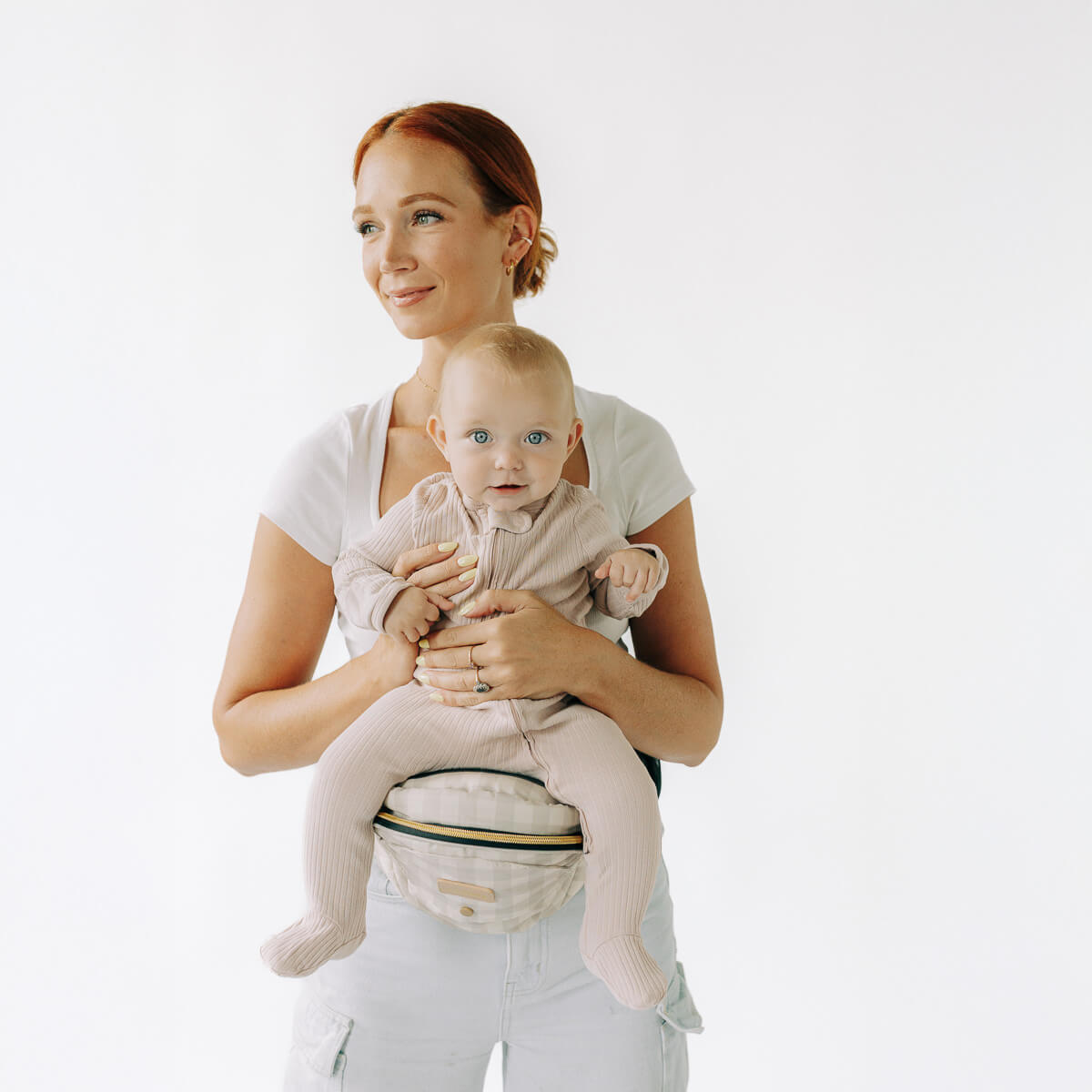



































![Tushbaby photo - Women holding baby using tushbaby gray ::[15109665390658]](http://tushbaby.com/cdn/shop/files/GreyCarrier_160x.webp?v=1762198155)
![Tushbaby photo - Women holding baby using tushbaby gray ::[15109665390658]](http://tushbaby.com/cdn/shop/files/Grey3_160x.webp?v=1748543102)
![Tushbaby photo - Women holding baby using tushbaby gray ::[15109665390658]](http://tushbaby.com/cdn/shop/files/rKeAfN6W_160x.webp?v=1748543102)
![Tushbaby photo - Women holding baby using tushbaby gray ::[15109665390658]](http://tushbaby.com/cdn/shop/files/Grey4_95ede319-844c-41db-96eb-608ec6a3b897_160x.webp?v=1748543102)
![Tushbaby photo - Women holding baby using tushbaby gray ::[15109665390658]](http://tushbaby.com/cdn/shop/files/Grey2_160x.webp?v=1748543102)
![Tushbaby photo - Women holding baby using tushbaby gray ::[15109665390658]](http://tushbaby.com/cdn/shop/files/Grey5_160x.webp?v=1747418215)
![Tushbaby photo - Hip seat carrier,baby carrier hip seat,baby wrap carrier baby carrier wrap,baby carrier,baby wrap carriers,baby carriers,baby wraps,baby sling wrap,baby slings,baby wrap sling,carrier for big baby, toddler carrier, nursing carrier, breastfeeding carrier, diaper bag, baby belt carrier, strapless carrier, big kid carrier, special needs carrier,Tote,Diaper bag,Tote bag,Diaper pad,Changing pad,Pacifier pod,Coin purse,Vegan leather bag,Vegan tote,Vegan baby products,plus sized baby carrier::[15109665390658]](http://tushbaby.com/cdn/shop/files/Grey8_160x.webp?v=1747418215)
![Tushbaby photo - Tushbaby grey holding bottle ::[15109665390658]](http://tushbaby.com/cdn/shop/files/Grey9_160x.webp?v=1747418215)
![Tushbaby photo - Women using tushbaby::[15109665423426]](http://tushbaby.com/cdn/shop/files/BlackColor1_160x.webp?v=1747418215)
![Tushbaby photo - man using tushbaby::[15109665423426]](http://tushbaby.com/cdn/shop/files/BlackColor2_160x.webp?v=1747418215)
![Tushbaby photo - Women using tushbaby::[15109665423426]](http://tushbaby.com/cdn/shop/files/BlackColor3_160x.webp?v=1747418215)
![Tushbaby photo - ::[15109665423426]](http://tushbaby.com/cdn/shop/files/BlackColor4_160x.webp?v=1747418215)
![Tushbaby photo - ::[15109665423426]](http://tushbaby.com/cdn/shop/files/BlackColor5_160x.webp?v=1747418215)
![Tushbaby photo - ::[15109665423426]](http://tushbaby.com/cdn/shop/files/BlackColor6_160x.webp?v=1747418215)
![Tushbaby photo - ::[15109665423426]](http://tushbaby.com/cdn/shop/files/BlackColor7_160x.webp?v=1747418215)
![Tushbaby photo - ::[15109665423426]](http://tushbaby.com/cdn/shop/files/BlackColor9_160x.webp?v=1747418215)
![Tushbaby photo - Women using tushbaby::[15109665521730]](http://tushbaby.com/cdn/shop/files/Black_Gold1_3_160x.webp?v=1747418215)
![Tushbaby photo - Women using tushbaby::[15109665521730]](http://tushbaby.com/cdn/shop/files/Black_Gold2_160x.webp?v=1747418215)
![Tushbaby photo - Women using tushbaby::[15109665521730]](http://tushbaby.com/cdn/shop/files/Black_Gold3_160x.webp?v=1747418215)
![Tushbaby photo - Women using tushbaby::[15109665521730]](http://tushbaby.com/cdn/shop/files/Black_Gold4_160x.webp?v=1747418215)
![Tushbaby photo - Man using tushbaby::[15109665521730]](http://tushbaby.com/cdn/shop/files/Black_Gold5_160x.webp?v=1747418215)
![Tushbaby photo - Women using tushbaby::[15109665521730]](http://tushbaby.com/cdn/shop/files/Black_Gold6_160x.webp?v=1747418215)
![Tushbaby photo - Tushbaby::[15109665521730]](http://tushbaby.com/cdn/shop/files/Black_Gold7_160x.webp?v=1747418215)
![Tushbaby photo - Tushbaby::[15109665521730]](http://tushbaby.com/cdn/shop/files/Black_Gold9_160x.webp?v=1747418215)
![Tushbaby photo - ::[31311822422082]](http://tushbaby.com/cdn/shop/files/VeganLeatherBlack1_160x.webp?v=1747418215)
![Tushbaby photo - ::[31311822422082]](http://tushbaby.com/cdn/shop/files/VeganLeatherBlack3_160x.webp?v=1747418215)
![Tushbaby photo - ::[31311822422082]](http://tushbaby.com/cdn/shop/files/VeganLeatherBlack4_160x.webp?v=1747418215)
![Tushbaby photo - ::[31311822422082]](http://tushbaby.com/cdn/shop/files/VeganLeatherBlack5_160x.webp?v=1747418215)
![Tushbaby photo - ::[31311822422082]](http://tushbaby.com/cdn/shop/files/VeganLeatherBlack7_160x.webp?v=1747418215)
![Tushbaby photo - ::[31311822422082]](http://tushbaby.com/cdn/shop/files/VeganLeatherBlack8_160x.webp?v=1747418215)
![Tushbaby photo - ::[31311822422082]](http://tushbaby.com/cdn/shop/files/VeganLeatherBlack9_160x.webp?v=1747418215)
![Tushbaby photo - ::[40092713287746]](http://tushbaby.com/cdn/shop/files/LiteCharcoal1_160x.webp?v=1747418215)
![Tushbaby photo - ::[40092713287746]](http://tushbaby.com/cdn/shop/files/LiteCharcoal2_160x.webp?v=1747418215)
![Tushbaby photo - ::[40092713287746]](http://tushbaby.com/cdn/shop/files/LiteCharcoal3_160x.webp?v=1747418215)
![Tushbaby photo - ::[40092713287746]](http://tushbaby.com/cdn/shop/files/LiteCharcoal4_160x.webp?v=1747418215)
![Tushbaby photo - ::[40092713287746]](http://tushbaby.com/cdn/shop/files/LiteCharcoal6_160x.webp?v=1747418215)
![Tushbaby photo - ::[40092713287746]](http://tushbaby.com/cdn/shop/files/LiteCharcoal7_160x.webp?v=1747418215)
![Tushbaby photo - ::[40092713287746]](http://tushbaby.com/cdn/shop/files/LiteCharcoal8_160x.webp?v=1747418215)
![Tushbaby photo - ::[40092713320514]](http://tushbaby.com/cdn/shop/files/VelvetSable1_160x.webp?v=1747418215)
![Tushbaby photo - ::[40092713320514]](http://tushbaby.com/cdn/shop/files/VelvetSable3_160x.webp?v=1747418215)
![Tushbaby photo - ::[40092713320514]](http://tushbaby.com/cdn/shop/files/VelvetSable4_160x.webp?v=1747418215)
![Tushbaby photo - ::[40092713320514]](http://tushbaby.com/cdn/shop/files/VelvetSable5_160x.webp?v=1747418215)
![Tushbaby photo - ::[40092713320514]](http://tushbaby.com/cdn/shop/files/VelvetSable6_160x.webp?v=1747418215)
![Tushbaby photo - ::[40092713320514]](http://tushbaby.com/cdn/shop/files/VelvetSable7_160x.webp?v=1747418215)
![Tushbaby photo - ::[40092713320514]](http://tushbaby.com/cdn/shop/files/VelvetSable8_160x.webp?v=1747418215)
![Tushbaby photo - ::[40288698040386]](http://tushbaby.com/cdn/shop/files/VeganLeatherCognac1_160x.webp?v=1747418215)
![Tushbaby photo - ::[40288698040386]](http://tushbaby.com/cdn/shop/files/VeganLeatherCognac3_160x.webp?v=1747418215)
![Tushbaby photo - ::[40288698040386]](http://tushbaby.com/cdn/shop/files/VeganLeatherCognac4_160x.webp?v=1747418215)
![Tushbaby photo - ::[40288698040386]](http://tushbaby.com/cdn/shop/files/VeganLeatherCognac5_160x.webp?v=1747418215)
![Tushbaby photo - ::[40288698040386]](http://tushbaby.com/cdn/shop/files/VeganLeatherCognac6_160x.webp?v=1747418215)
![Tushbaby photo - ::[40288698040386]](http://tushbaby.com/cdn/shop/files/VeganLeatherCognac7_160x.webp?v=1747418215)
![Tushbaby photo - ::[40288698040386]](http://tushbaby.com/cdn/shop/files/VeganLeatherCognac8_160x.webp?v=1747418215)
![Tushbaby photo - ::[40288698040386]](http://tushbaby.com/cdn/shop/files/VeganLeatherCognac9_160x.webp?v=1747418215)
![Tushbaby photo - ::[40288698040386]](http://tushbaby.com/cdn/shop/files/VeganLeatherCognac10_160x.webp?v=1747418215)
![Tushbaby photo - ::[40503457382466]](http://tushbaby.com/cdn/shop/files/Orchid1Square_160x.webp?v=1747418215)
![Tushbaby photo - ::[40503457382466]](http://tushbaby.com/cdn/shop/files/Orchid3Square_160x.webp?v=1747418215)
![Tushbaby photo - ::[40503457382466]](http://tushbaby.com/cdn/shop/files/Orchid4Square_160x.webp?v=1747418215)
![Tushbaby photo - ::[40503457382466]](http://tushbaby.com/cdn/shop/files/Orchid5Square_160x.webp?v=1747418215)
![Tushbaby photo - ::[40503457382466]](http://tushbaby.com/cdn/shop/files/Orchid6Square_160x.webp?v=1747418215)
![Tushbaby photo - ::[40503457382466]](http://tushbaby.com/cdn/shop/files/Orchid7Square_160x.webp?v=1747418215)
![Tushbaby photo - ::[40503457382466]](http://tushbaby.com/cdn/shop/files/Orchid8Square_160x.webp?v=1747418215)
![Tushbaby photo - ::[40503457382466]](http://tushbaby.com/cdn/shop/files/Orchid9Square_160x.webp?v=1747418215)
![Tushbaby photo - ::[40503457382466]](http://tushbaby.com/cdn/shop/files/Orchid10Square_160x.webp?v=1747418215)
![Tushbaby photo - ::[40288993017922]](http://tushbaby.com/cdn/shop/files/VeganLeatherCream1_160x.webp?v=1747418215)
![Tushbaby photo - ::[40288993017922]](http://tushbaby.com/cdn/shop/files/VeganLeatherCream3_160x.webp?v=1747418215)
![Tushbaby photo - ::[40288993017922]](http://tushbaby.com/cdn/shop/files/VeganLeatherCream4_160x.webp?v=1747418215)
![Tushbaby photo - ::[40288993017922]](http://tushbaby.com/cdn/shop/files/VeganLeatherCream6_160x.webp?v=1747418215)
![Tushbaby photo - ::[40288993017922]](http://tushbaby.com/cdn/shop/files/TBcream_blackseat2_160x.jpg?v=1759513482)
![Tushbaby photo - ::[40288993017922]](http://tushbaby.com/cdn/shop/files/VeganLeatherCream7_160x.webp?v=1759513482)
![Tushbaby photo - ::[40288993017922]](http://tushbaby.com/cdn/shop/files/VeganLeatherCream9_160x.webp?v=1759513482)
![Tushbaby photo - ::[40503457415234]](http://tushbaby.com/cdn/shop/files/SnowLeopard1_160x.webp?v=1759513482)
![Tushbaby photo - ::[40288993017922]](http://tushbaby.com/cdn/shop/files/TBcream_blackseat1_b994af6f-4e75-4f7b-b8ba-9750798bd0e7_160x.jpg?v=1759513482)
![Tushbaby photo - ::[40503457415234]](http://tushbaby.com/cdn/shop/files/SnowLeopard3_160x.webp?v=1759513482)
![Tushbaby photo - ::[40503457415234]](http://tushbaby.com/cdn/shop/files/SnowLeopard4_160x.webp?v=1759513482)
![Tushbaby photo - ::[40503457415234]](http://tushbaby.com/cdn/shop/files/SnowLeopard5_160x.webp?v=1759513482)
![Tushbaby photo - ::[40503457415234]](http://tushbaby.com/cdn/shop/files/SnowLeopard6_160x.webp?v=1759513482)
![Tushbaby photo - ::[40503457415234]](http://tushbaby.com/cdn/shop/files/SnowLeopard7_160x.webp?v=1759513482)
![Tushbaby photo - ::[40503457415234]](http://tushbaby.com/cdn/shop/files/SnowLeopard8_160x.webp?v=1759513482)
![Tushbaby photo - ::[40503457415234]](http://tushbaby.com/cdn/shop/files/SnowLeopard9_160x.webp?v=1759513482)
![Tushbaby photo - ::[40503457448002]](http://tushbaby.com/cdn/shop/files/Tweed1.-Square_160x.webp?v=1759513482)
![Tushbaby photo - ::[40503457448002]](http://tushbaby.com/cdn/shop/files/Tweed3-Square_160x.webp?v=1759513482)
![Tushbaby photo - ::[40503457448002]](http://tushbaby.com/cdn/shop/files/Tweed4-Square_160x.webp?v=1759513482)
![Tushbaby photo - ::[40503457448002]](http://tushbaby.com/cdn/shop/files/Tweed5-Square_160x.webp?v=1759513482)
![Tushbaby photo - ::[40503457448002]](http://tushbaby.com/cdn/shop/files/Tweed6-Square_160x.webp?v=1759513482)
![Tushbaby photo - ::[40503457448002]](http://tushbaby.com/cdn/shop/files/Tweed8-Square_160x.webp?v=1759513482)
![Tushbaby photo - ::[41633540800578]](http://tushbaby.com/cdn/shop/files/Marble1_160x.webp?v=1759513482)
![Tushbaby photo - ::[41633540800578]](http://tushbaby.com/cdn/shop/files/Marble2_160x.webp?v=1759513482)
![Tushbaby photo - ::[41633540800578]](http://tushbaby.com/cdn/shop/files/Marble4_160x.webp?v=1759513482)
![Tushbaby photo - ::[41633540800578]](http://tushbaby.com/cdn/shop/files/Marble5_160x.webp?v=1759513482)
![Tushbaby photo - ::[41633540800578]](http://tushbaby.com/cdn/shop/files/Marble6_160x.webp?v=1759513482)
![Tushbaby photo - ::[41633540800578]](http://tushbaby.com/cdn/shop/files/Marble7_160x.webp?v=1759513482)
![Tushbaby photo - ::[41633540800578]](http://tushbaby.com/cdn/shop/files/Marble8_160x.webp?v=1759513482)
![Tushbaby photo - ::[41633540800578]](http://tushbaby.com/cdn/shop/files/Marble9_160x.webp?v=1759513482)
![Tushbaby photo - ::[41984257556546]](http://tushbaby.com/cdn/shop/files/Olive1_297431f9-eeb3-411c-bc0e-08d37e703197_160x.webp?v=1759513482)
![Tushbaby photo - ::[41984257556546]](http://tushbaby.com/cdn/shop/files/Olive2_bb6953ff-d61f-471a-b48f-3b36c7dbfb21_160x.webp?v=1759513482)
![Tushbaby photo - ::[41984257556546]](http://tushbaby.com/cdn/shop/files/Olive3_97f99469-33f5-4192-9446-dcdfdbf32e84_160x.webp?v=1759513482)
![Tushbaby photo - ::[41984257556546]](http://tushbaby.com/cdn/shop/files/Olive4_f9c88ddf-96de-476c-bef3-d57f9ddbd5c1_160x.webp?v=1759513482)
![Tushbaby photo - ::[41984257556546]](http://tushbaby.com/cdn/shop/files/Olive5_e2741f35-99ec-4ed5-9307-809ef4ead286_160x.webp?v=1759513482)
![Tushbaby photo - ::[41984257556546]](http://tushbaby.com/cdn/shop/files/Olive6_a66205d9-b767-4224-a04f-6e20597c7c38_160x.webp?v=1759513482)
![Tushbaby photo - ::[41984257556546]](http://tushbaby.com/cdn/shop/files/Olive7_ab97dc70-f0b9-4a70-9137-943b8e3982e1_160x.webp?v=1759513482)
![Tushbaby photo - ::[41984257556546]](http://tushbaby.com/cdn/shop/files/Olive8_160x.webp?v=1759513482)
![Tushbaby photo - ::[41984257556546]](http://tushbaby.com/cdn/shop/files/Olive9_160x.webp?v=1759513482)
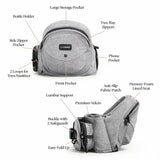
![Tushbaby photo - ::[s-uper-image] ::[e-mbroidery]](http://tushbaby.com/cdn/shop/files/BlackLeather-Monogram1_160x.webp?v=1759513482)
![Tushbaby photo - ::[s-uper-image] ::[e-mbroidery]](http://tushbaby.com/cdn/shop/files/Orchid-Monogram_160x.webp?v=1759513482)

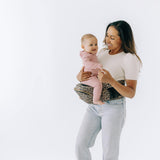

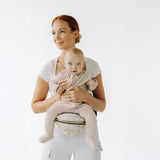







































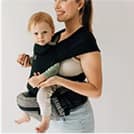
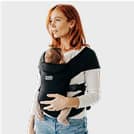

Leave a comment